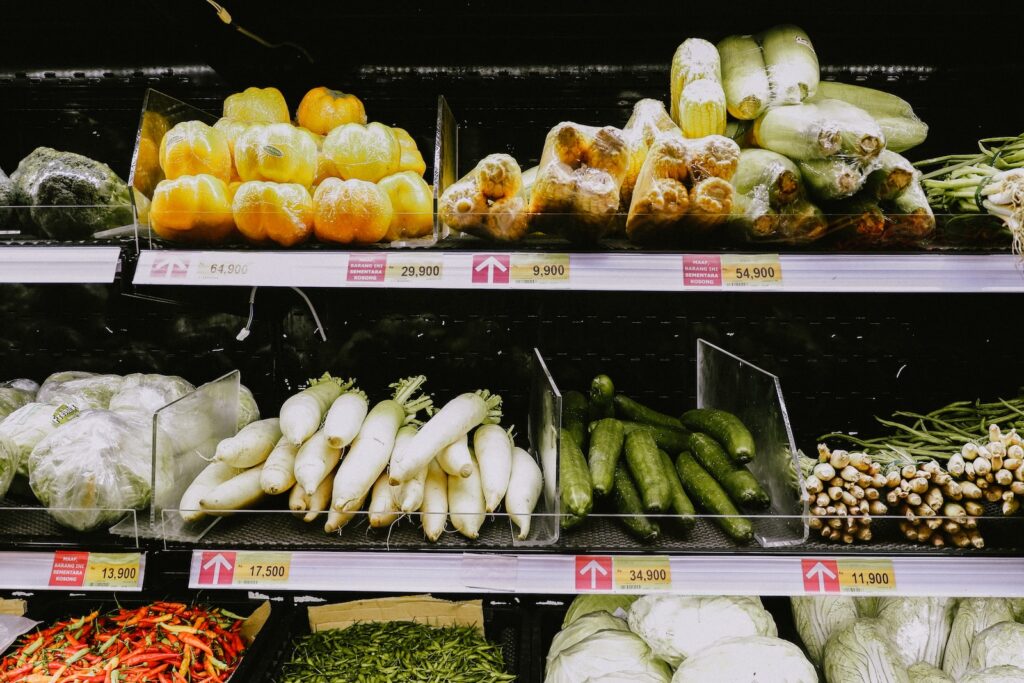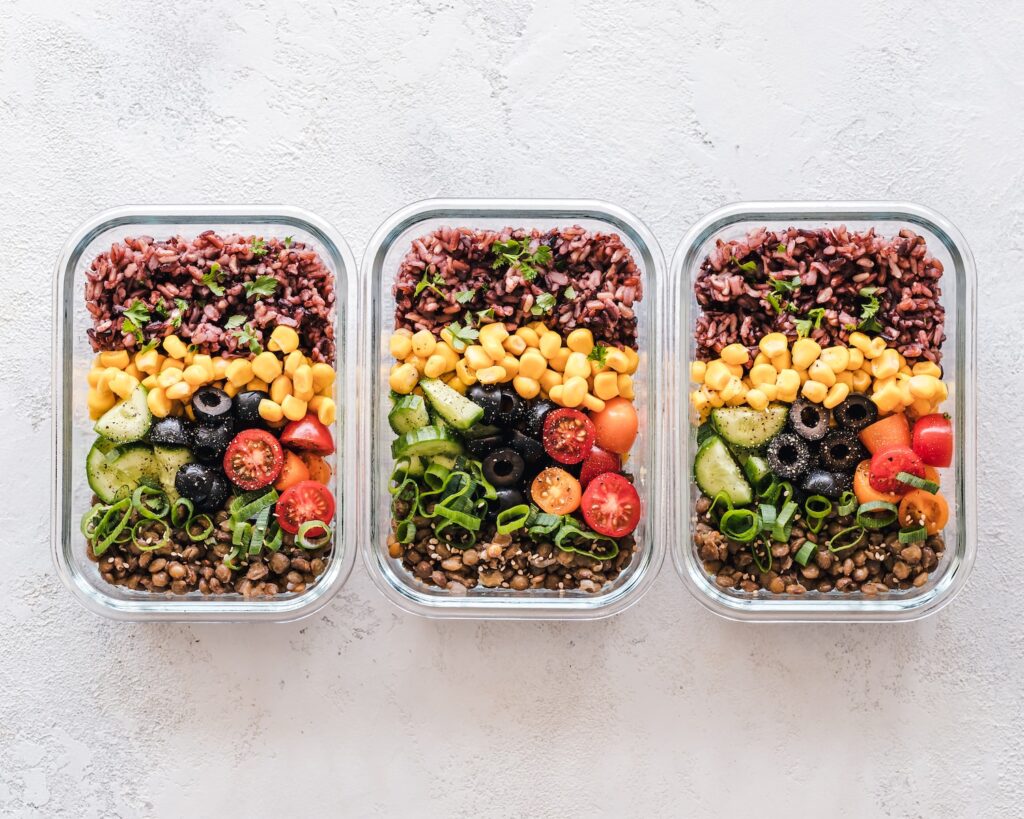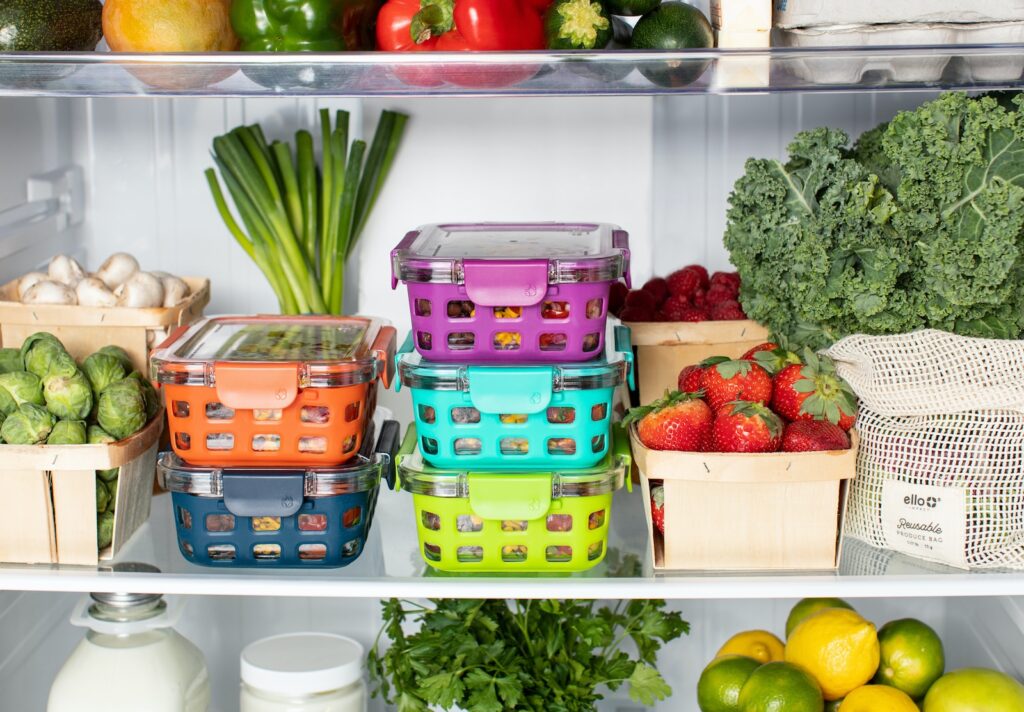Going vegan can be a great way to improve your health, reduce your environmental impact, and save animals. However, many people believe that veganism is expensive and not affordable for everyone. The good news is that it is possible to be vegan on a budget, and we are here to show you how.
One of the most important things to keep in mind when going vegan on a budget is to plan your meals in advance. This will help you to avoid impulsive purchases and eating out, which can quickly add up. Shopping at farmers’ markets and buying in-season produce can also be a great way to save money, as the produce there is often cheaper than what you would find at the grocery store. Additionally, buying in bulk can save you money in the long run, as you can often get a discount for buying larger quantities.
Why Go Vegan?
As we consider transitioning to a vegan lifestyle, it’s essential to understand why we’re making this change. Going vegan means avoiding all animal products, including meat, dairy, eggs, and honey. Here are some reasons why we might choose to go vegan:
Veganism
Veganism is a lifestyle that seeks to avoid animal exploitation and cruelty. By going vegan, we’re taking a stand against animal exploitation and choosing to live a more compassionate life. We believe that animals should not be used for food, clothing, or entertainment, and we want to do our part to end their suffering.

Animal Rights
Many people go vegan because they believe in animal rights. Animals are sentient beings who can feel pain, fear, and joy, just like humans. By going vegan, we’re standing up for the rights of animals and advocating for their well-being. We believe that animals deserve to live free from harm and exploitation.

Environmental Impact
The meat and dairy industries have a significant impact on the environment. Animal agriculture is responsible for a significant amount of greenhouse gas emissions, deforestation, and water pollution. By going vegan, we’re reducing our carbon footprint and helping to protect the planet. We believe that we have a responsibility to take care of the earth and all its inhabitants.
In conclusion, there are many reasons why we might choose to go vegan. Whether it’s for the animals, the environment, or our health, we believe that living a vegan lifestyle is a compassionate and responsible choice.
Veganism on a Tight Budget
When we’re on a tight budget, it can be challenging to maintain a healthy and balanced vegan diet. However, it’s entirely possible to eat plant-based without breaking the bank. Here are some tips to help you stay on track with your vegan lifestyle while keeping your wallet happy.
Shopping Tips
One of the best ways to save money on groceries is to plan ahead. Before heading to the store, make a list of the items you need and stick to it. This will help you avoid impulse purchases and unnecessary spending.
When shopping for produce, try to buy in-season fruits and vegetables. They are often cheaper and taste better. Frozen fruits and vegetables are also a great option, as they are typically less expensive than fresh produce and can be just as nutritious.
Legumes, such as beans and lentils, are an excellent source of protein and are usually very affordable. Buying them in bulk can save you even more money. Whole grains like brown rice and whole wheat pasta are also great options that won’t break the bank.
Cooking Tips
Cooking at home is one of the best ways to save money on food. Preparing meals in advance can help you avoid the temptation to eat out, which can be expensive and often less healthy.
When cooking, try to use simple ingredients and spices. Basic spices like salt, pepper, and garlic powder can add a lot of flavor to your meals without adding extra cost. You can also experiment with different herbs and spices to add variety to your meals.
It’s important to make sure you’re getting enough protein and other essential nutrients on a vegan diet. Incorporating a variety of protein sources, such as legumes, tofu, and tempeh, can help you meet your protein needs. Eating a variety of fruits and vegetables can also help ensure you’re getting all the necessary vitamins and minerals.
In conclusion, being vegan on a tight budget is possible with some planning and creativity. By shopping smart and cooking at home, you can enjoy a healthy and balanced plant-based diet without breaking the bank.

Affordable Vegan Options
When we’re on a tight budget, it can be challenging to maintain a vegan lifestyle. However, with a little bit of planning and creativity, we can still enjoy a healthy and delicious plant-based diet without breaking the bank. Here are some affordable vegan options to consider:
Grocery Stores
When it comes to buying vegan food, grocery stores are our go-to option. While specialty stores may carry a wider range of vegan products, they can also be more expensive. Instead, we can opt for grocery stores that offer a good selection of affordable vegan options. Some popular options include Costco, which offers bulk vegan products like beans, rice, and pasta at a lower price, and regular supermarkets like Walmart and Aldi which carry vegan-friendly brands.
Online Shopping
Online shopping is another great way to save money on vegan products. We can find a variety of vegan options on Amazon and other online shopping platforms, often at a lower price than in-store. Additionally, some stores like Thrive Market offer a membership-based online platform that provides discounts on vegan products.
In-Season Produce
Fresh produce is an essential part of a healthy vegan diet, but it can also be expensive, especially when it’s out of season. To save money, we can opt for in-season produce, which is often cheaper and more readily available. We can also look for local farmers’ markets, which may offer fresh produce at a lower price.
Overall, there are many affordable vegan options available to us, whether we shop in-store or online. By planning our meals, buying in bulk, and opting for in-season produce, we can maintain a healthy and budget-friendly vegan lifestyle.
Meal Planning and Prep
When it comes to being vegan on a budget, meal planning and prep are crucial. By taking the time to plan out our meals for the week, we can save money and avoid wasting food. Plus, having a plan in place can make it easier to resist the temptation to order takeout or grab something from a vending machine.
Here are some tips to help us with meal planning and prep:
- Plan ahead: Take some time each week to plan out our meals. Look for recipes that use affordable ingredients like canned beans, noodles, and frozen vegetables. Consider investing in a pressure cooker to make cooking beans and grains faster and easier.
- Batch cook: Cook a big batch of something like chili or soup on the weekend and portion it out for the week. This can save us time and money by reducing the need to cook from scratch every day.
- DIY staples: Consider making your own plant-based milk, nut butter, and other staples. This can be cheaper than buying pre-made versions, and it allows us to control the ingredients and avoid unnecessary additives.
- Supplements: While it’s possible to get all the nutrients we need from a well-planned vegan diet, some of us may choose to take supplements to ensure we’re getting everything we need. Talk to a healthcare provider to determine which supplements, if any, are right for us.
By incorporating these tips into our meal planning and prep, we can make being vegan on a budget more manageable.

Connecting with the Vegan Community
As vegans, we understand the importance of having a supportive community that shares our values and beliefs. Connecting with other vegans can not only help us stay motivated and inspired, but it can also provide us with valuable resources and information to help us maintain a healthy and affordable vegan lifestyle.
Online Communities
There are many online communities that are dedicated to veganism and animal rights. Reddit is one of the most popular online communities for vegans, with subreddits such as r/vegan and r/veganrecipes. These subreddits are great places to connect with other vegans, share recipes, and ask for advice on how to maintain a vegan lifestyle on a budget.
Another great resource is the PETA website, which has a wealth of information on veganism, animal rights, and environmental impact. They also have a section where you can sign up for their email newsletter, which provides tips and resources for living a vegan lifestyle.
Local Groups
Connecting with local vegan groups can also be a great way to meet other vegans and get involved in the community. Many cities have local vegan groups that organize events such as potlucks, cooking classes, and activism events. These groups can also be a great resource for finding affordable vegan food options in your area.
The Reddit app is a great way to connect with local vegan groups in your area. Simply search for your city or town in the search bar and join any relevant groups. You can also check out the Meetup website, which has a variety of vegan groups and events in different cities.
Overall, connecting with the vegan community can be a great way to stay motivated and inspired on your vegan journey. Whether you’re looking for online resources or local groups, there are many options available to help you maintain a healthy and affordable vegan lifestyle.
FAQ: How to Be Vegan When You’re Broke
Q: What does it mean to be on a budget-friendly, plant-based diet?
A: Being on a budget-friendly, plant-based diet means focusing on affordable, nutrient-dense whole foods such as fruits, vegetables, whole grains, legumes, nuts, and seeds.
Q: How can I afford to eat vegan food without going broke?
A: There are many ways to make a vegan diet affordable, such as buying in bulk, choosing whole grains, and buying frozen produce. You can also look for budget-friendly plant-based options like tofu, lentils, veggie spring rolls, and other cheap foods.
Q: Can I eat meat and still be on a plant-based diet?
A: No, a plant-based diet means avoiding all animal products, including meat and dairy. However, there are many delicious vegan alternatives to meat and cheese that you can incorporate into your meals.
Q: What are some plant-based alternatives to meat?
A: Some plant-based alternatives to meat include soy-based products like tofu and tempeh, as well as seitan, lentils, and beans.
Q: How can I make delicious vegan meals without going broke?
A: There are many ways to make delicious vegan meals on a budget, such as cooking with affordable ingredients like lentils and beans, using spices and herbs to add flavor, and making homemade sauces and soups.
Q: Can I still eat vegan if I’m not a good cook?
A: Yes, there are many simple and easy vegan recipes that don’t require advanced cooking skills. You can also find pre-made vegan meals or fast-food options if you’re short on time or don’t have access to a kitchen.
Q: How can I go vegan without wasting food?
A: One way to go vegan without wasting food is to gradually phase out non-vegan items, using up what you have before replacing them with vegan alternatives. You can also plan meals in advance and freeze leftovers for later use.
Q: What are some affordable vegan substitutes for dairy products?
A: Some affordable vegan substitutes for dairy products include plant-based milk like almond, soy, or oat milk, as well as vegan cheese and butter alternatives.
Q: What are some easy plant-based meals for beginners?
A: Some easy plant-based meals for beginners include pasta with vegan sauce, lentil soup, veggie stir-fry, curry with tofu or chickpeas, and vegan burgers.
Q: Are nuts and seeds a budget-friendly source of protein?
A: Yes, nuts and seeds can be a budget-friendly source of protein as they can be bought in bulk and used in many different ways, such as added to salads, smoothies, or homemade granola.

Leave a Reply